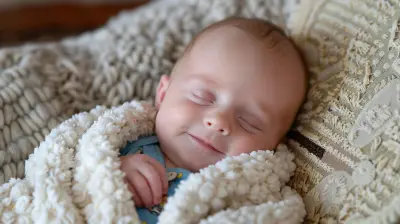The Connection Between Sleep and Cognitive Growth in Children
4 July 2025
We all know that sleep is important. But when it comes to kids, it’s downright crucial—especially for their brains. Think of a child’s brain like a sponge, constantly soaking up new words, ideas, experiences, and emotions. But here’s the secret: that sponge doesn’t hold onto much unless it gets enough rest. In fact, the connection between sleep and cognitive growth in children might be one of the most underrated aspects of parenting.
Not convinced? Let’s dive in and unpack how a good night’s sleep can shape the way kids think, learn, remember, and grow into emotionally balanced, smart little humans.
Why Sleep Matters So Much for Kids
Ever heard the phrase “sleeping like a baby”? It’s funny, because babies wake up a lot. But when they do sleep, they’re doing some of the most important work of their lives—literally growing their brains.From infancy to adolescence, a child’s brain is under major construction. Neural pathways are forming, connections are strengthening, and memory consolidation is happening. And guess what fuels all that development? Yep, sleep.
While adults can often function (though not ideally) on minimal rest, kids need more sleep for a reason—their brains and bodies are growing at lightning speed.
How Sleep Boosts Brain Development
Let’s get into the nitty-gritty. What’s actually happening inside a child’s brain during sleep? A lot more than you might think.1. Memory Consolidation
Remember studying for a test and waking up the next day surprised you actually remembered something? That’s memory consolidation at work. During deep sleep, especially in the REM (Rapid Eye Movement) stage, the brain processes information gathered during the day and stores it in long-term memory.Kids are constantly learning—whether it's their ABCs, how to tie their shoes, or how to play nice with friends. Without enough sleep, much of that knowledge doesn't stick.
2. Brain Plasticity
Young brains are incredibly flexible. This “plasticity” means they’re constantly growing, adapting, and changing. Sleep plays a key role in strengthening the neural connections that form during waking hours.Think of the brain like a muscle. Every time your child learns something new, it’s like lifting a tiny mental weight. But the gains—those come during sleep, when the brain rebuilds and refines those connections.
3. Emotional Regulation
Ever noticed how cranky and irrational a tired child can be? There’s a reason for that. Sleep affects the brain’s ability to regulate moods, handle stress, and make sound decisions.When well-rested, children are more emotionally balanced. They have better impulse control, fewer tantrums, and a greater ability to manage social interactions. That’s because sleep helps regulate cortisol (the stress hormone) and supports the development of the prefrontal cortex—the part of the brain responsible for judgment and self-control.
Age-By-Age Guide: How Much Sleep Do Kids Really Need?
Let’s break it down, shall we? Here’s what sleep experts recommend for different age groups.| Age Group | Recommended Sleep |
|------------------|-------------------|
| Newborns (0–3 months) | 14–17 hours/day |
| Infants (4–12 months) | 12–16 hours/day |
| Toddlers (1–2 years) | 11–14 hours/day |
| Preschoolers (3–5 years) | 10–13 hours/day |
| School-age (6–12 years) | 9–12 hours/night |
| Teens (13–18 years) | 8–10 hours/night |
It’s not just about quantity either—quality matters. Interrupted or restless sleep isn’t as effective for brain development. This means creating healthy sleep habits is crucial.
Signs Your Child Isn’t Getting Enough Sleep
Sometimes, the signs of sleep deprivation in kids aren’t obvious. They might not say “I’m tired” the way adults do. Instead, look out for:- Trouble waking up in the morning
- Hyperactivity (yes, it can mimic ADHD)
- Frequent meltdowns or mood swings
- Difficulty concentrating in school
- Poor memory or forgotten instructions
- Falling asleep during car rides (even short ones)
If these sound familiar, it might be time to take a closer look at your child’s sleep routine.
Building Healthy Sleep Habits for Better Brain Growth
Okay, so we know sleep is important. But how do we make sure our kids are getting enough good-quality rest? Here are some practical, parent-tested strategies.1. Stick to a Consistent Bedtime
Kids thrive on routine. Having a predictable bedtime signals to the brain that it’s time to unwind. Even on weekends, try not to stray too far from the weekday schedule.2. Create a Calming Pre-Sleep Routine
Think of bedtime as a runway to sleep. Gradually wind things down with quiet activities like reading, a warm bath, or gentle music. Avoid screens—they mess with melatonin production and trick the brain into thinking it’s still daytime.3. Make the Bedroom a Sleep Sanctuary
The bedroom should be dark, quiet, and cool. Consider blackout curtains, white noise machines, or even a bedtime “lovey” for younger kids to create a cozy environment.4. Keep an Eye on Diet and Exercise
A balanced diet and plenty of physical activity during the day can promote better sleep at night. Just avoid high-sugar snacks or big meals close to bedtime.5. Watch for Sleep Disorders
If your child snores loudly, has night terrors, or sleepwalks frequently, it's worth checking in with a pediatrician. Sleep disorders can seriously impact cognitive development.The Sleep-Learning Connection in School Performance
Here’s something that surprises a lot of parents: kids who sleep better tend to perform better in school—not just academically, but socially and emotionally too.Better Focus
A well-rested brain has a higher attention span. Kids are more likely to stay on task, follow directions, and tune into the lesson.Enhanced Problem-Solving
Ever try thinking through a math problem while running on three hours of sleep? It’s not pretty. Kids need quality rest to develop logical thinking and critical problem-solving skills.Improved Creativity and Imagination
Sleep supports the brain’s “imaginative” side too. REM sleep boosts the ability to think creatively, which helps in storytelling, art, and even figuring out how to solve playground squabbles.Teens and Sleep: A Whole New Challenge
When kids hit puberty, their internal clocks shift. They naturally want to stay up later and sleep in longer, but early school start times don’t always cooperate.As a result, many teens are chronically sleep-deprived. This can affect everything from their GPA to their mental health.
If you’ve got a teen in the house, try these tips:
- Let them unwind before bed without screens
- Encourage naps when needed (but keep them short)
- Advocate for later school start times if possible
- Understand that mood swings may be sleep-related
Sleep isn’t laziness—it’s brain investment!
When Sleep Improves, Cognitive Growth Follows
The bottom line? More and better sleep equals smarter, more resilient, and emotionally balanced kids. It’s not magic—it’s biology.We wouldn’t expect our kids to run a marathon without training. So why expect them to pay attention, regulate their emotions, or ace their spelling test without proper sleep? Their brains are doing heavy lifting every day. Sleep is the recovery they need to grow and thrive.
So next time your little one yawns before dinner or your teen wants to sleep in on a Saturday? Respect the need. Sleep might just be the most important subject they study all year.
Final Thoughts
Raising happy, healthy kids isn’t easy—and when sleep gets thrown out of whack, everything else tends to follow. But understanding the connection between sleep and cognitive growth in children gives us a powerful parenting tool. If we can prioritize consistent, quality sleep, we’re setting our kids up for a lifetime of mental, emotional, and academic success.So tonight, let’s skip one more episode of that cartoon, dim the lights, and tuck them in with the confidence that we’re doing one of the best things we possibly can for their growing minds.
Good night, little geniuses.
all images in this post were generated using AI tools
Category:
Child DevelopmentAuthor:

Liam Huffman
Discussion
rate this article
1 comments
Flint McGarvey
Sleep and kids: it's like trying to charge a phone with one of those tiny solar panels. Good luck! Here’s hoping their cognitive growth doesn’t depend on the nap time battle we face!
July 10, 2025 at 4:39 PM

Liam Huffman
Absolutely! Sleep is crucial for cognitive growth, but getting kids to rest can feel like a challenge. Here’s to finding creative solutions for better nap times!


